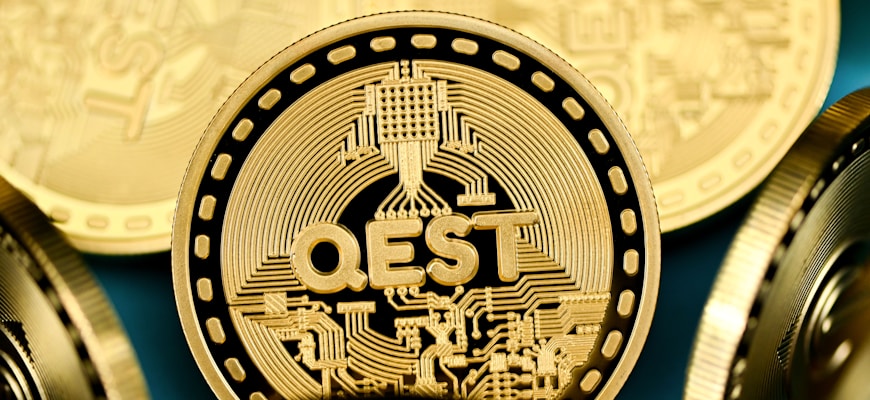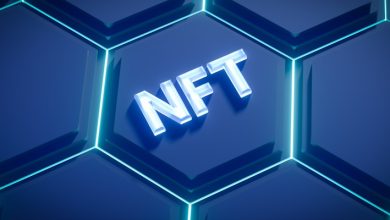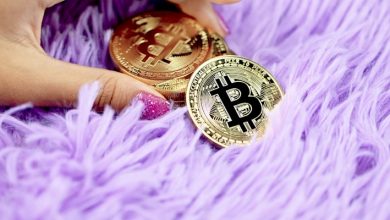DeFi Explosion: Record-Breaking Growth in Decentralized Finance

- Understanding the rise of decentralized finance (DeFi)
- The key drivers behind the explosive growth of DeFi
- Exploring the benefits and risks of participating in DeFi
- How DeFi is reshaping the traditional financial landscape
- Challenges and opportunities in the rapidly expanding DeFi ecosystem
- What the future holds for decentralized finance and its impact on the global economy
Understanding the rise of decentralized finance (DeFi)
Decentralized finance, or DeFi, has been gaining significant traction in the financial world in recent years. DeFi refers to a financial system that operates without traditional intermediaries such as banks or brokerage firms. Instead, DeFi relies on blockchain technology to enable direct peer-to-peer transactions.
One of the key reasons for the rise of DeFi is the growing interest in blockchain technology and cryptocurrencies. As more people become familiar with the benefits of decentralized systems, they are turning to DeFi as a way to access financial services in a more efficient and transparent manner.
Furthermore, the decentralized nature of DeFi offers users greater control over their assets and transactions. With DeFi, users can access a wide range of financial services, including lending, borrowing, trading, and more, without the need for third-party intermediaries.
As DeFi continues to expand, it has the potential to revolutionize the traditional financial system by providing more inclusive and accessible financial services to a global audience. With the rise of DeFi, individuals who were previously excluded from the traditional financial system can now participate in various financial activities and take control of their financial futures.
The key drivers behind the explosive growth of DeFi
The explosive growth of decentralized finance (DeFi) can be attributed to several key drivers that have propelled this sector to new heights in recent years.
One of the main factors driving the growth of DeFi is the desire for greater financial inclusivity. Traditional financial systems have often excluded large segments of the population, particularly in developing countries. DeFi offers a more accessible and inclusive alternative, allowing anyone with an internet connection to participate in financial services and access a wide range of decentralized applications.
Another key driver behind the growth of DeFi is the potential for higher returns on investments compared to traditional financial markets. With decentralized platforms offering innovative ways to earn interest, provide liquidity, and stake assets, many investors are flocking to DeFi in search of greater profits.
Additionally, the decentralized nature of DeFi platforms appeals to users who value privacy and security. By removing the need for intermediaries and operating on blockchain technology, DeFi offers a level of transparency and trust that is often lacking in traditional financial systems.
Furthermore, the rapid pace of innovation within the DeFi space has attracted a wave of developers and entrepreneurs looking to create new products and services. This constant stream of new projects and ideas has helped to fuel the growth of DeFi and keep the ecosystem dynamic and evolving.
Exploring the benefits and risks of participating in DeFi
Exploring the advantages and drawbacks of participating in DeFi can help investors make informed decisions before diving into this rapidly growing sector of the cryptocurrency market. While there are numerous benefits to be gained from participating in DeFi, it’s essential to also understand the potential risks involved.
- Benefits of participating in DeFi:
- 1. High potential for returns: DeFi platforms offer the opportunity for investors to earn high yields on their cryptocurrency holdings through various lending and staking mechanisms.
- 2. Decentralization: DeFi operates on blockchain technology, which means that transactions are secure, transparent, and free from centralized control.
- 3. Accessibility: DeFi platforms are open to anyone with an internet connection, allowing for greater financial inclusion and access to various financial services.
Despite the promising benefits, it’s crucial to be aware of the risks associated with participating in DeFi:
- Risks of participating in DeFi:
- 1. Smart contract vulnerabilities: DeFi protocols rely on smart contracts, which can be prone to bugs and vulnerabilities that hackers can exploit.
- 2. Market volatility: The cryptocurrency market is highly volatile, and DeFi investments can be subject to sudden price fluctuations.
- 3. Regulatory uncertainty: The regulatory environment surrounding DeFi is still evolving, which could pose legal risks for participants.
How DeFi is reshaping the traditional financial landscape
Decentralized Finance (DeFi) is revolutionizing the traditional financial landscape by offering a more inclusive and accessible alternative to traditional banking systems. Through the use of blockchain technology, DeFi platforms enable users to access a wide range of financial services without the need for intermediaries such as banks or brokers.
One of the key ways in which DeFi is reshaping the financial industry is by providing users with greater control over their assets. By using smart contracts, DeFi platforms allow users to directly interact with their funds, eliminating the need for third-party involvement. This not only reduces the risk of fraud and manipulation but also lowers transaction costs and speeds up the process.
Furthermore, DeFi platforms offer a wide range of financial services that were previously only available to a select few. From lending and borrowing to trading and asset management, DeFi opens up new opportunities for individuals to grow their wealth and access the global financial markets.
As DeFi continues to gain momentum and attract more users, it is clear that this decentralized approach to finance is here to stay. With its innovative technology and user-centric design, DeFi is set to revolutionize the way we think about and interact with money, leading to a more inclusive and transparent financial ecosystem for all.
Challenges and opportunities in the rapidly expanding DeFi ecosystem
The rapidly expanding DeFi ecosystem presents both challenges and opportunities for investors and developers alike. As the DeFi space continues to grow at an unprecedented rate, it is crucial to assess the potential obstacles and advantages that come with this explosive growth.
One of the main challenges in the DeFi ecosystem is the issue of security. With the increasing number of decentralized applications and platforms, the risk of hacks and vulnerabilities also rises. Developers need to constantly innovate and improve their security measures to protect users’ funds and data.
Another challenge is the scalability of DeFi platforms. As more users flock to decentralized finance for its benefits, such as low fees and fast transactions, the current infrastructure may struggle to handle the increased demand. This presents an opportunity for developers to work on scaling solutions to ensure a seamless user experience.
On the flip side, the rapid growth of DeFi also opens up a world of opportunities for investors and developers. With decentralized finance gaining mainstream attention, there is a huge potential for financial innovation and new revenue streams. Developers can explore new use cases and applications for DeFi technology, while investors can capitalize on the expanding market.
Overall, the challenges and opportunities in the DeFi ecosystem go hand in hand. By addressing security concerns and scalability issues, developers can unlock the full potential of decentralized finance and create a sustainable ecosystem for all stakeholders involved.
What the future holds for decentralized finance and its impact on the global economy
The future of decentralized finance (DeFi) is poised to revolutionize the global economy in unprecedented ways. As DeFi continues to experience exponential growth and adoption, its impact on traditional financial systems is becoming increasingly evident. The rise of decentralized platforms and applications is challenging the status quo of centralized institutions, offering new opportunities for financial inclusion and innovation.
DeFi has the potential to democratize access to financial services, allowing individuals from all corners of the globe to participate in a more open and transparent financial system. By leveraging blockchain technology and smart contracts, DeFi eliminates the need for intermediaries, reducing costs and increasing efficiency in the process. This shift towards decentralized finance is reshaping the way we think about money, investments, and banking.
The implications of DeFi for the global economy are vast and far-reaching. As decentralized platforms continue to gain traction, they have the potential to disrupt traditional financial markets, create new opportunities for wealth creation, and promote financial sovereignty for individuals. The growth of DeFi is also sparking conversations around regulatory frameworks, as policymakers seek to understand and adapt to this rapidly evolving landscape.
In conclusion, the future of decentralized finance holds immense promise for transforming the global economy. As DeFi technologies mature and become more mainstream, we can expect to see a shift towards a more inclusive, efficient, and transparent financial ecosystem. The impact of DeFi on traditional finance is undeniable, and it is only a matter of time before decentralized solutions become the new norm in the world of finance.



